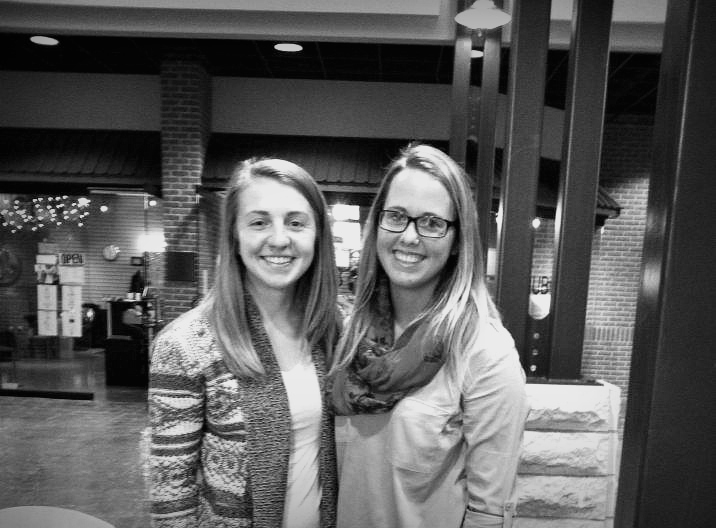I was terrified. I was moving into my dorm room for my freshman year at Indiana Wesleyan University (IWU). Will I make friends? What if I fail a class? Did I choose the right major? These were just a …

They’re a Big Kid Now! (But They Still Need a Mentor)
The college transition can be rough at times. You miss your family, your friends, your bed, even your dog! Although my freshman year wasn’t always a smooth sail, one thing that helped was having a mentor.
I had the privilege of living in North Hall (now named Beckett Hall), which is part of the Journey to Success Mentoring Program. Through this program freshmen students are paired with an upperclassman student to walk alongside and mentor them.

A mentor and mentee involved in IWU’s Journey to Success Mentoring Program
Journey to Success began in the fall of 2007 with the opening of North Hall. The opening of South Hall in 2010 doubled the size of the program. This year the program consists of 90 mentors and 230 mentees. The mission of Journey to Success is “to assist first-year students in making a successful transition from high school to college.”
As a freshman in college, I didn’t fully understand the impact of a peer-mentoring relationship, but I do now. The mentors (both formal and informal) I had throughout my years at IWU helped me tread through some rough waters. They cried with me, celebrated with me, and everything in between. Looking back, I realize my peer mentors positively influenced my life in more ways than I can count.
Kim Parker, the IWU Assistant Dean for Mentoring and Residential Learning Initiatives, shares some benefits of peer mentoring:
- Level of excitement/commitment – Most of our peer mentors have recently experienced the transition from high school to college and therefore are eager to pass along the lessons they have learned to those coming after them. In addition, often our mentees are excited to know they have an upperclassman student they can go to with specific questions as they learn how to adjust to college life.
- Same generation – There is value in learning from those of an older or younger generation, however there can be a great deal of value in learning from those similar in age as well. The students can already see eye to eye and speak the same language on many things due to the closeness in age.
- Personal Growth — There is a significant amount of growth and learning that takes place in, not only the mentee, but the peer mentor as well. Within our program we get to see the peer mentors grow in so many different ways as they are stretched and challenged as individuals, student leaders and peer mentors. The students grow in their faith, leadership skills, emotional intelligence, character, and the list could go on and on!
The point: Even “big kids” need mentors. “People kind of underestimate how difficult the transition will be,” reported Keith Anderson, chairman of the Mental Health Best Practices Task Force at the American College Health Association in Baltimore. Mentoring relationships are an incredible asset for college freshmen (and anyone, for that matter), helping to ease the difficult transition.
Do you know someone who recently entered or will be entering their freshman year of college? Share with them the importance and benefit of finding a mentor to guide them through the transition!







